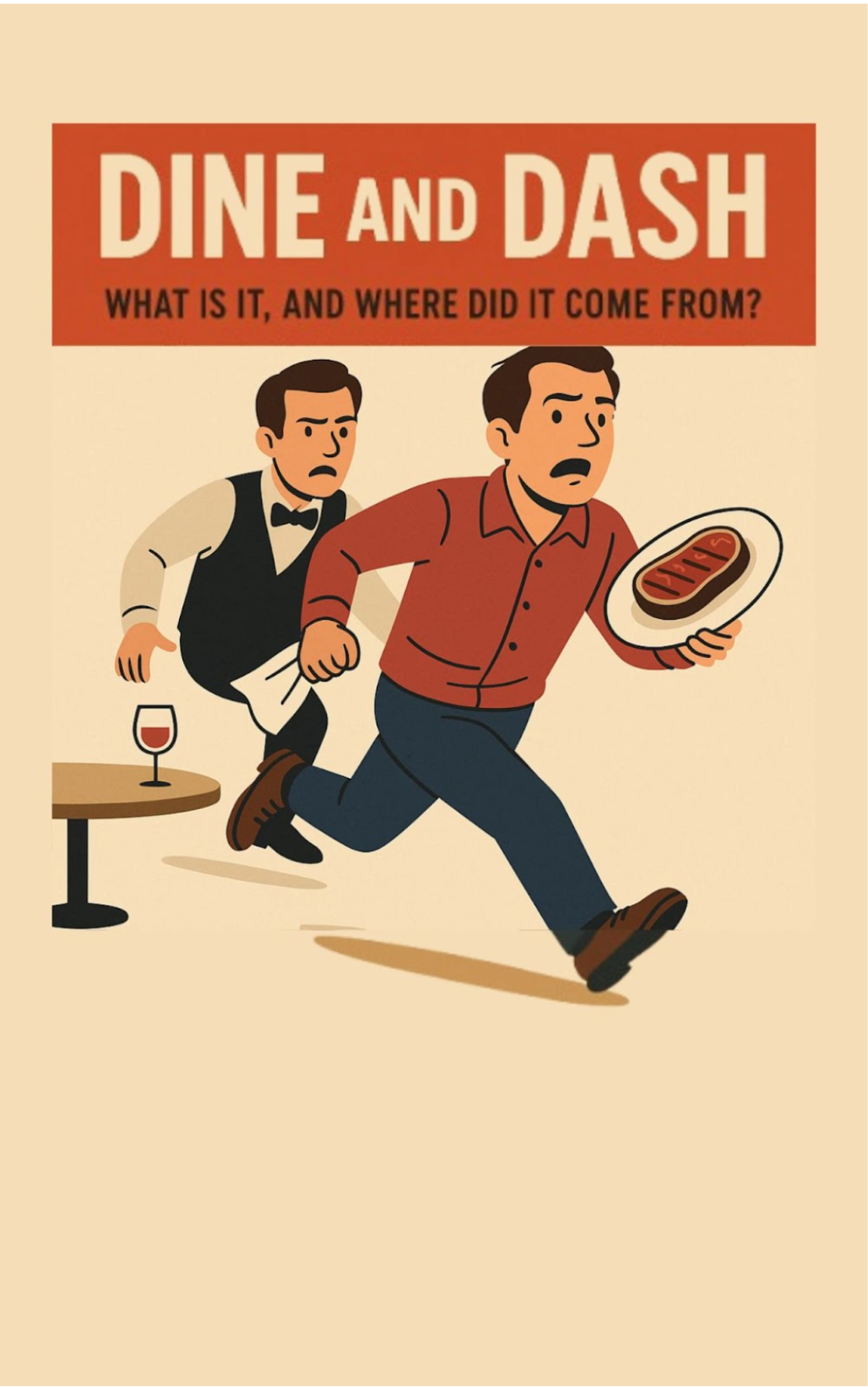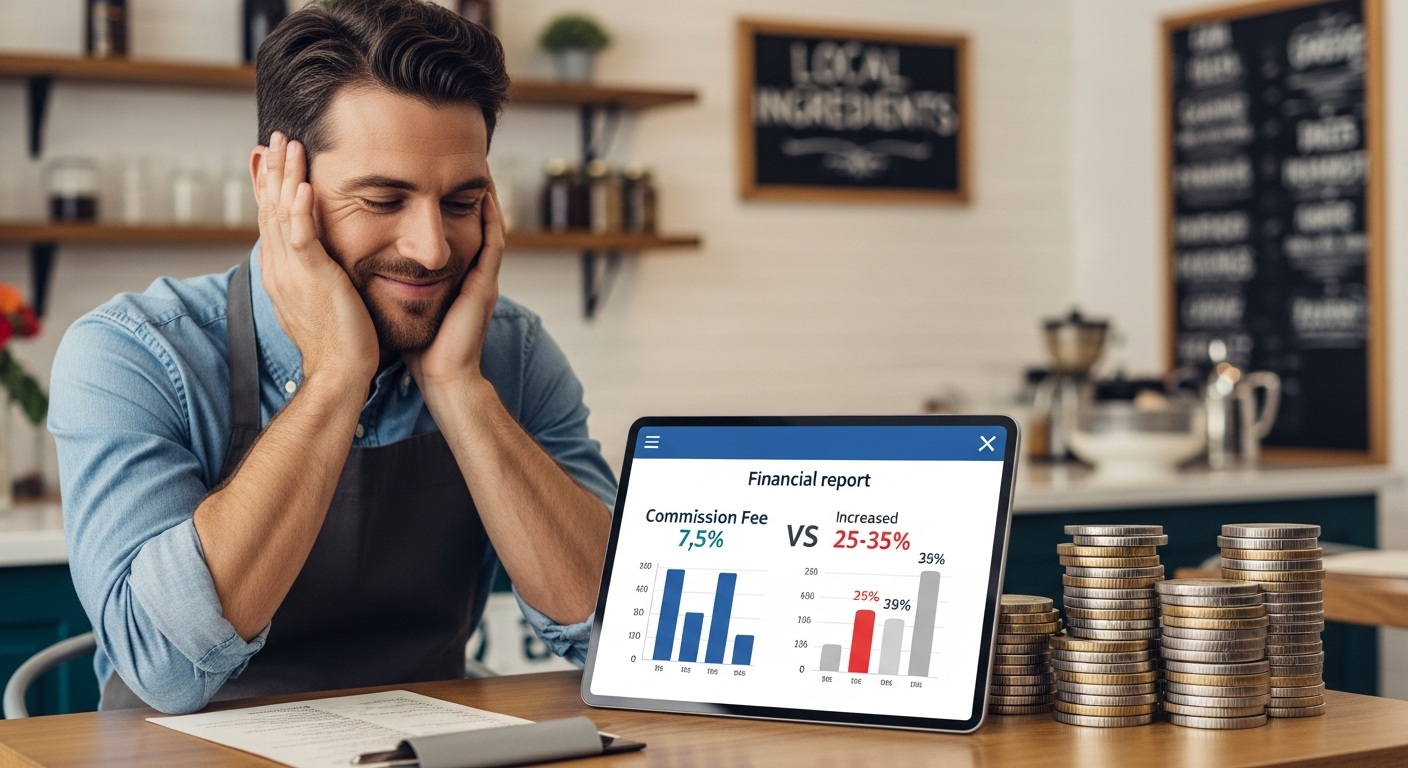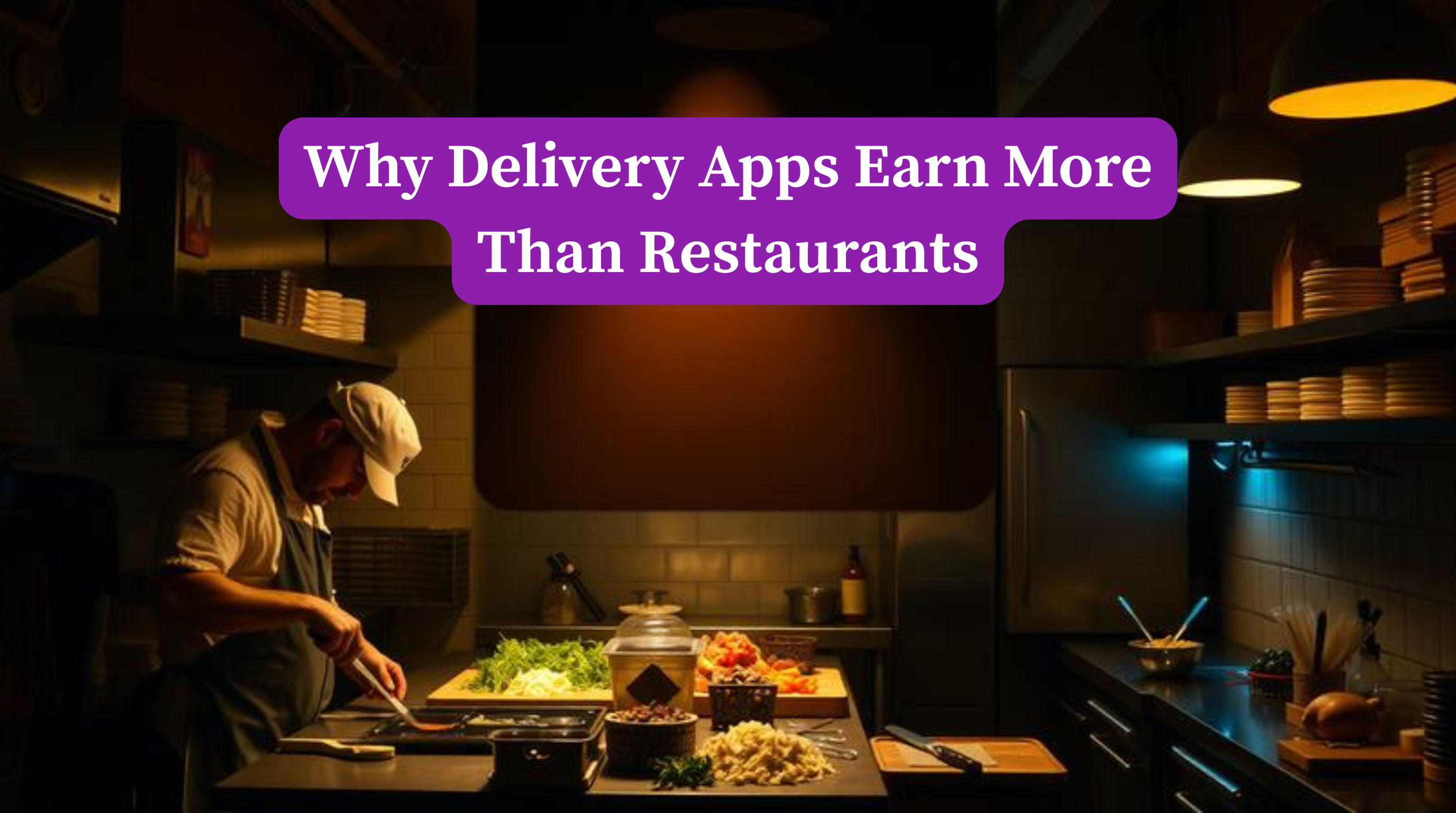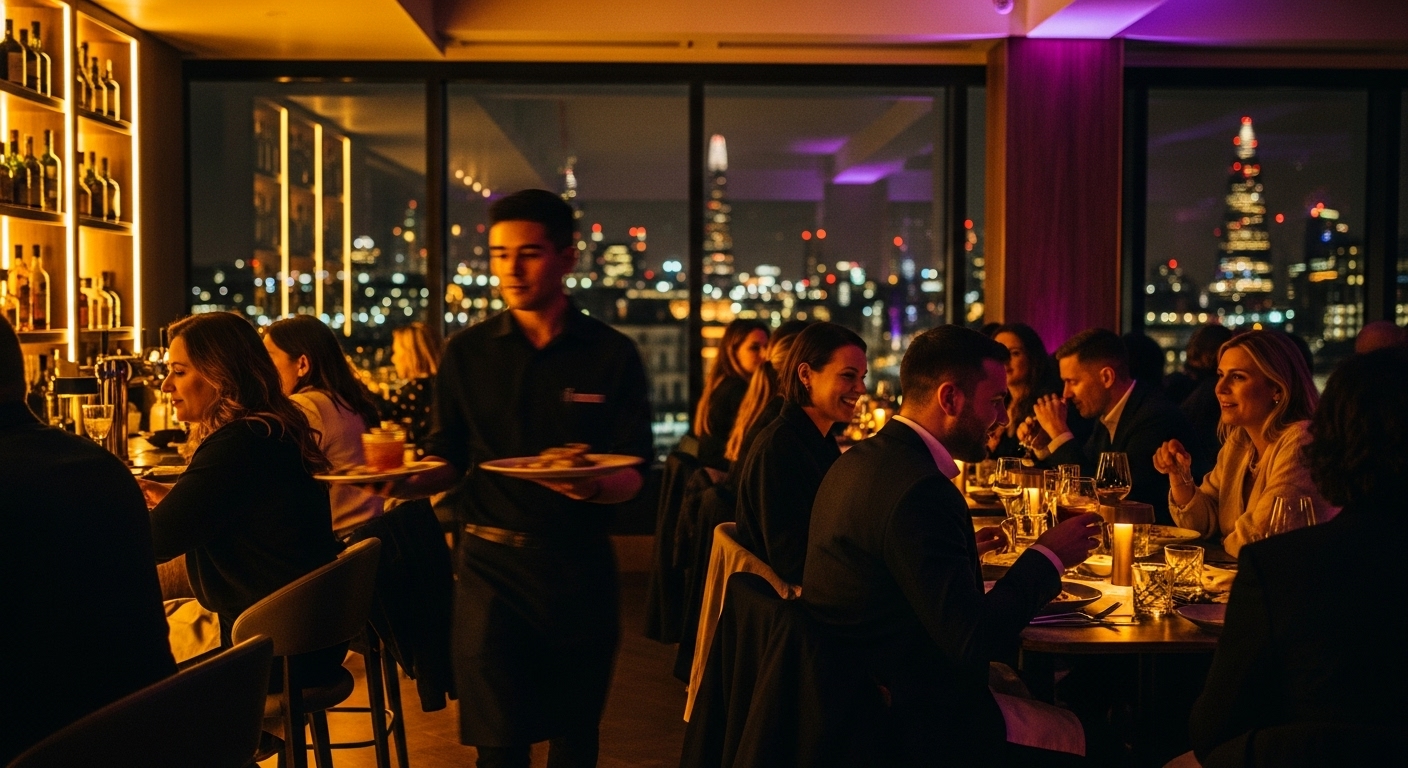The One Where Joey Almost Dined and Dashed
Joey: "If you’re gonna do something wrong… do it right!"
Chandler: "That is the dumbest thing I have ever heard."
If you’re a FRIENDS fan, you might remember the episode where Joey orders the most expensive steak, polishes it off like a starving man, and then suddenly realizes—oops—he forgot his wallet! He panics, considers running, but in true Joey fashion, finds a way to charm himself out of trouble.
Now, imagine if he hadn’t been so lucky and actually bolted. That, my friends, would be a textbook case of Dine and Dash—except instead of laughs, it could lead to a police report and a whole lot of regret.
Dine and Dash: What Is It, and Where Did It Come From?
Dine and Dash is exactly what it sounds like—enjoying a meal at a restaurant and then leaving without paying. It’s been around as long as restaurants have existed, though back in medieval times, they probably just called it "fleeing the feast." The phrase itself is relatively modern, but the crime? Ancient.
Historically, food was considered a sacred necessity, and establishments had various ways of dealing with those who failed to pay. In some cultures, it wasn’t uncommon for culprits to be publicly shamed or forced into hard labor. While modern society has shifted away from such extreme consequences, skipping out on a bill is still widely frowned upon.
The UK's First Big Dine and Dash Case
One of the earliest recorded cases in the UK dates back to 1894, when a man in London enjoyed a lavish meal, complete with fine wine, only to make a sneaky getaway through a back alley. Unfortunately for him, the restaurant owner was hot on his heels and had him arrested on the spot. Talk about a quick fall from high society to the local jail!
Interestingly, during the early 20th century, many working-class diners operated on an honor system. Patrons could eat first and pay later, trusting that they’d settle their debts at the end of the month. However, as the economy shifted and businesses grew more commercialized, this trust-based model faded, leading to stricter enforcement against dine-and-dashers.
How Dine and Dash Has Evolved Over Time
Dine and Dash used to be more of a teenage prank or a petty crime, but today, it’s taken on new forms especially in the age of social media. Some offenders document their "missions" online, unknowingly leaving a trail of evidence for the police. Others use fake identities, large group distractions, or even dine in disguise before vanishing.
One modern trend involves ordering excessive amounts of food, filming the meal for TikTok or YouTube, and then making a swift exit. Some offenders even boast about their "adventures" online, turning criminal behavior into viral entertainment. However, many of these people quickly regret their actions when restaurant owners expose them on social media—or worse, when law enforcement gets involved.
Another notable shift in dine-and-dash culture is the emergence of digital payment fraud. Some culprits intentionally use expired credit cards or fake mobile payment screenshots to fool waitstaff, making it harder to detect the crime immediately.
The Impact on Restaurants and Small Businesses
While some may view dine and dash as a harmless prank, the reality is far from amusing for restaurant owners. For small businesses, losing even a handful of meals per week to unpaid bills can have significant financial consequences. Some establishments have resorted to requiring pre-payments for high-ticket items or implementing strict security measures, such as surveillance cameras and staff training to spot potential dashers.
Beyond the financial loss, there’s also the impact on restaurant employees. Waiters and waitresses, who often work for tips, may find themselves penalized for a missing bill. In some places, servers are expected to cover the loss from their own wages—turning a fun night out into a nightmare for hardworking staff.
Legal Consequences of Dine and Dash in the UK
Think skipping out on the bill is no big deal? Think again. In the UK, Dine and Dash is considered theft under the Theft Act 1978. It’s not just rude, it’s a criminal offense. If caught, offenders can face a hefty fine, a criminal record, and even up to two years in prison. And no, telling the judge "I forgot my wallet" isn’t going to win you any sympathy.
Law enforcement agencies take theft seriously, and many restaurants have begun working directly with local police to track repeat offenders. Some serial dine-and-dashers have been permanently banned from dining establishments, while others have faced serious legal consequences.
In one bizarre case, a man known as the "Dine and Dash Dater" in London was arrested for repeatedly taking women on lavish dinner dates, only to leave before the bill arrived. His elaborate scheme lasted months before law enforcement caught up with him, proving that even the smoothest talkers can’t outrun the long arm of the law forever.
A Hilariously Unforgettable Punishment
While most cases lead to fines or legal action, some restaurant owners have found more creative ways to deal with dine-and-dashers. One café in Manchester made a young offender wash dishes for an entire shift to "pay off" his stolen meal. But here’s the twist—he had to do it in front of an audience, wearing a bright pink apron that read, "I stole a meal, now I clean the deals!" Not only did the stunt go viral, but it also ensured he never tried it again.
Another humorous case involved a small-town pub where the owner decided to "name and shame" an offender by plastering their face on a giant poster near the entrance, warning potential customers: "This man loves our food so much, he thinks it should be free!" The customer eventually returned, embarrassed, and settled his unpaid bill just to have the poster removed.
How Restaurants Are Fighting Back (The Smarter Way)
In an era where technology and customer expectations are evolving rapidly, restaurants are adopting innovative strategies to prevent dine-and-dash incidents, ensuring a seamless and secure dining experience for all patrons.
Let’s face it, dining out should feel good, not stressful. But with headlines warning of QR code scams popping up in restaurants, bars, and even car parks in BBC and The Guardians a lot of people are wondering: “Is this code safe to scan?”
That’s exactly why more venues are switching apps like to Quikin, a smarter, safer way to order and pay.
1. One App. Zero Doubts - With Quikin, everything happens in one place, your phone. No sketchy QR codes, no sharing your card details with strangers. Just open the app, order your food, and pay directly to the venue using your Quikin Wallet. It's fast, secure, and you always know exactly where your money’s going.
2. Safe from QR Code Scams - Scammers are sneaky, some even stick fake QR codes on tables that redirect you to dodgy sites. But with Quikin, there’s no guessing. The app is your direct line to the venue, so you’re protected from these tricks. Think of it as peace of mind, built in.
3. Staff Who Are in the Know - Quikin doesn’t just help customers, it empowers staff, too. With real-time updates and verified orders, teams can stay on top of things and spot any suspicious behavior quickly. That means better service, smoother nights, and safer spaces for everyone.
The Bottom Line: Is It Worth It?
While the idea of skipping out on a bill might seem tempting to some, the repercussions far outweigh the fleeting thrill. With advanced security measures, digital payment integrations, and vigilant staff, the chances of getting away unnoticed are slim.
Moreover, many establishments understand that unforeseen circumstances can arise. Open communication is encouraged, and solutions are often available for those facing genuine difficulties. After all, honesty fosters trust, and trust is the foundation of any lasting relationship.
So, the next time you're dining out, remember: integrity always leaves a better taste than any unpaid meal ever could.









